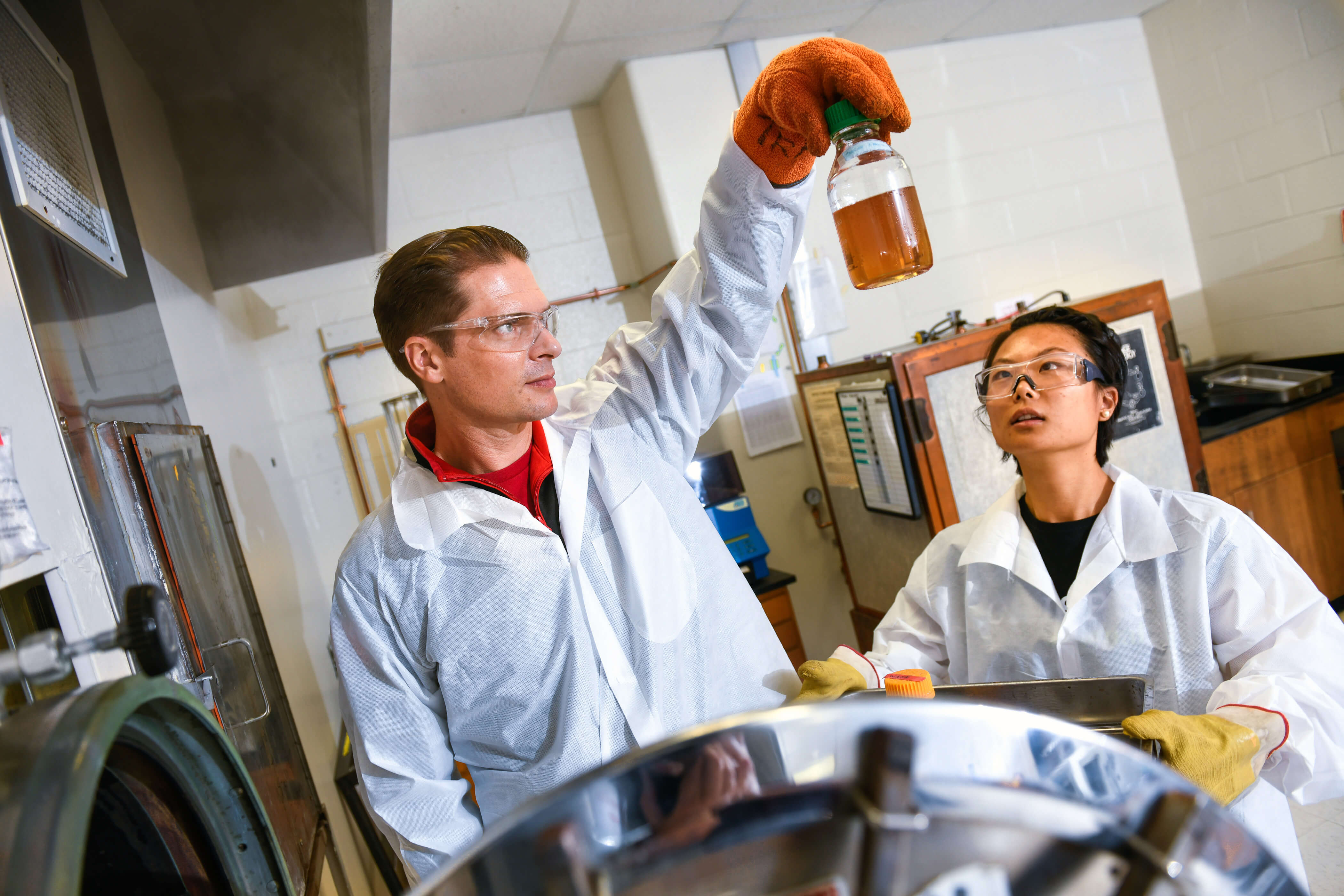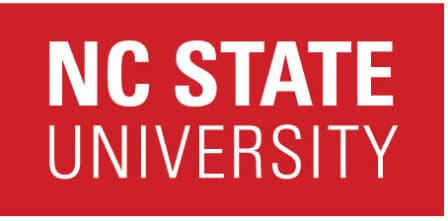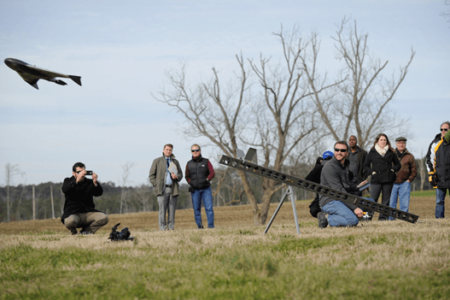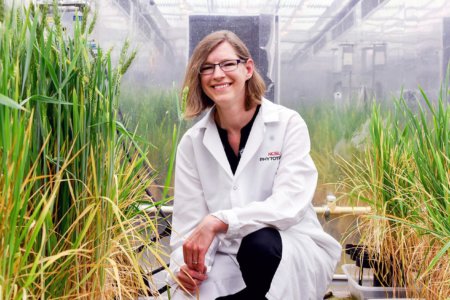Food insecurity — the inability to attain affordable, nutritious food — and food waste are global issues. At NC State University, research in agriculture and human health collide to discover solutions to these challenges in the Food, Bioprocessing and Nutrition Sciences (FBNS) department. At FBNS, undergraduate students have the opportunity to pursue a degree in Food Science, Bioprocessing Science or Nutrition Science. Graduate students can pursue a degree in Food Science or Nutrition.
With multiple research units — including the Southeast Dairy Foods Research Centre, the Centre for Advanced Processing and Packaging Studies, Plants for Human Health Institute, the NC Food Innovation Lab, Centre for Marine Sciences and Technology and the NC Plant Sciences Initiative — faculty and students conduct vital research across disciplines to tackle food system inefficiencies and health challenges head on. These unique opportunities in research develop and produce safe and high quality food products.
Healthy humans start with healthy food
Nobel-winning CRISPR technology allows researchers to make changes in sections of DNA to regulate immunity in bacteria and keep foods and plants healthy. One of those researchers is NC State food science professor and alumnus Rodolphe Barrangou. An internationally known CRISPR expert, Barrangou was part of an industry team that played a key role in confirming how CRISPRs regulate immunity in bacteria. Currently his research team is finding ways to improve the quality of dairy foods and to develop better probiotics for human health. This advanced research has the potential to provide new treatments for genetic diseases, make crops more nutritious and resilient, and help dairy experts improve yogurt and fermented foods.
Echo Pan, a graduate student in Food Science, joined the CRISPR lab in 2017 to specifically work with Professor Barrangou.
“As a young graduate student, I was curious and eager to learn more about food microbiology. Rodolphe’s CRISPR lab was the perfect fit for me, both in research topics and professional development,” said Pan. “I wanted to learn from a Principal Investigator that led rigorous and novel research, and also had industry experience.”
Now she is a senior graduate student in the CRISPR lab, mentoring undergraduate and graduate students. In 2020, she was selected for the Foundation for Food and Agriculture Research (FFAR) fellows cohort. As an FFAR fellow, she connects with other biotechnology PhD students and industry professionals from across the country and attends workshops and seminars to develop communication and leadership skills.
“I am thankful for this amazing opportunity from Rodolphe and the CRISPR lab family. Not only have I gained research skills in CRISPR technologies and molecular microbiology, I have also made progress in professional development,” said Pan. “After graduate school, I hope to join the biotechnology industry where I can apply my molecular genetics skills and work on projects that can make an impact.”
Online Master of Nutrition student aims to alleviate effects of food insecurity
Graduate student and Clinical Study Manager Lauren Nolley has been inspired by her studies at NC State to help alleviate the effects of food insecurity. She is looking forward to the future as she prepares to graduate with a Master of Nutrition, completed online at NC State.
Nolley decided to pursue her degree after she worked as a data collector for an obesity trial for infants and toddlers. The experience allowed her to observe meal habits in day care centres, which sparked her interest in nutrition.
“This experience really opened my eyes to not only the field, but the depth of the field of nutrition. Shortly after, I found myself always curious about new nutrition topics such as microbiome and nutrigenomics. I thought the best way to incorporate the field of clinical research and nutrition would be to pursue an advanced degree,” Nolley said.
NC State’s comprehensive nutrition programme and flexible distance education options drew Nolley in. She was attracted to NC State’s ability to provide her with an understanding of all elements of nutrition while she continued to work and complete research. Her experience within the programme did not disappoint.

Source: North Carolina State University: College of Agriculture and Life Sciences
“I have thoroughly enjoyed all of my classes, each of them providing me with knowledge that I will use for years to come,” she said. “I like how close the department is as well. It makes communication to professors and other students much easier.”
Though balancing her work with schoolwork was not easy, she set aside specific times to work on assignments, and she believes it was all worth it. As a clinical study manager for a clinical research organisation in Washington, DC, Nolley considers her work at NC State to be helpful and applicable to her career.
“The clinical trials that I work with are often for rare diseases that require very complicated treatments. My hope is to incorporate more nutrition-related objectives within these studies in hopes to provide some kind of alleviation with slight lifestyle changes,” she said. “I also see this degree helping me further understand nutraceuticals and incorporate them into trials as well.”
Nolley made sure to take advantage of her opportunities, participating in projects at NC State that would prepare her for her work. She dedicated a great deal of time to conducting research with faculty member Natalie Cooke to gain experience and knowledge of food insecurity.
“Working with Dr. Cooke has definitely opened my eyes to the plight of food insecurity not only in North Carolina but everywhere. It is a topic that is not often discussed but it is so prevalent, especially during the COVID-19 pandemic,” said Nolley. “Dr. Cooke and Dr. Goodell and their extensive knowledge of food insecurity have shaped my thoughts on the subject matter for the better.”
Perhaps the most attractive part of her online and distance education programme in Nutrition is the flexibility.
“I would absolutely encourage others to take the online Nutrition programme because it allows you to get your degree on your own time. It is much more flexible, but just as rigorous as in-person classes.”
Discover more about Food, Bioprocessing and Nutrition Sciences Graduate Programmes
Follow NC State on Facebook, Twitter, Instagram and LinkedIn













